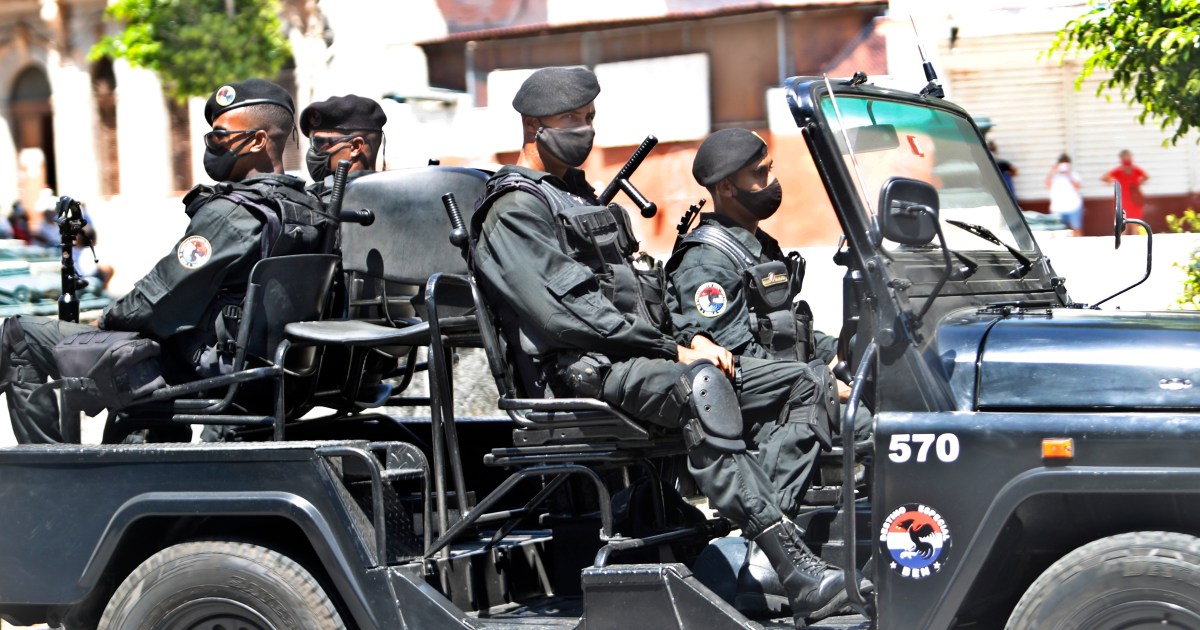On Friday, the United States imposed new sanctions on the Cuban police.
At a time when President Joe Biden vowed to take other measures unless there is a change in this island ruled by the Communists.
The US measures came in response to the Cuban police's response to the recent protests against the government, as demonstrators shouted "Down with the dictatorship" and complained of poverty and hunger.
"There will be more if there is no decisive change in Cuba, which I do not expect," Biden said, on the sidelines of a meeting at the White House with Cuban-American representatives.
The Cuban Treasury announced that the United States imposed sanctions on two high-ranking police officials, as well as the entire Revolutionary National Police, "for their involvement in the suppression of recent protests against the government."
National Revolutionary Police Director Oscar Callejas Valcars and Deputy Director Eddy Sierra Arias, accused of "serious human rights violations", were added to the US blacklist.
Their potential assets in the United States will be frozen and they will be banned from using the US financial system.
"The Treasury will continue to punish and name those who facilitate gross human rights abuses by the Cuban regime," said Andrea Jacki, director of the US Treasury's main unit in charge of sanctions.
"Today's actions are aimed at holding accountable those responsible for the suppression of the Cuban people's demands for freedom and respect for human rights," she added.
Unprecedented protests
Cuba, in the words of its foreign minister, Bruno Rodriguez, "resolutely" refused to include officials and the National Revolutionary Police on lists it described as "false".
"These arbitrary measures are added to the misinformation and aggression to justify an inhumane blockade against Cuba," Rodriguez wrote on Twitter, referring to the embargo imposed by Washington on the island since 1962.
Cuba, mired in a serious economic crisis, witnessed unprecedented protests on July 11, during which demonstrators chanted, "We are hungry, fall of the dictatorship."
As a result of these demonstrations, which resulted in the death of one person and dozens of injuries, about 10 people were arrested, according to various opposition organizations.
Washington immediately condemned what it called the crackdown, expressed support for the protesters, and promised to help the Cubans.
Biden is facing mounting pressure from Congress and the large Cuban-American community to take more concrete action.
On July 22, the US Treasury announced the first series of financial sanctions against Cuban Defense Minister Alvaro Lopez Meira and a special unit of the Ministry of the Interior known as the "Black Berets" that were deployed during the demonstrations.
These measures are added to packages of sanctions that Washington has imposed on Havana for decades, but their effect is very limited.
Internet access
And Biden said yesterday, "We hear your voices. We hear the calls for freedom," denouncing again the "failed communist system."
He noted that other support measures are under consideration.
The United States is studying specific ways to ensure free access to the Internet on the island.
It also wants to ensure that remittances sent by Cubans abroad reach their destinations, while the Americans say some of them are used by the Cuban army.
But the Democratic president has little chance of rallying the Republicans behind him, to respond to events in Cuba.
Republicans do not stop reminding Biden that he was a deputy to Barack Obama, who tried to follow the policy of openness with Havana.
"The Democrats are weak on Cuba and are the ones who spread the lies of the communist regime's anti-American propaganda," the Republican National Committee said in a statement Friday, adding that Biden's "lack of firmness is shameful."

